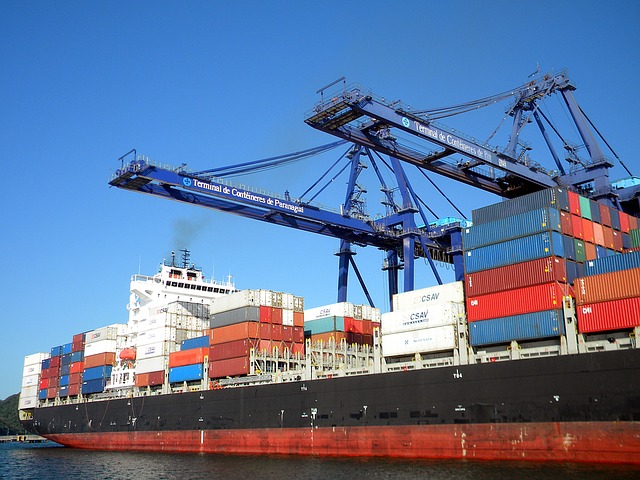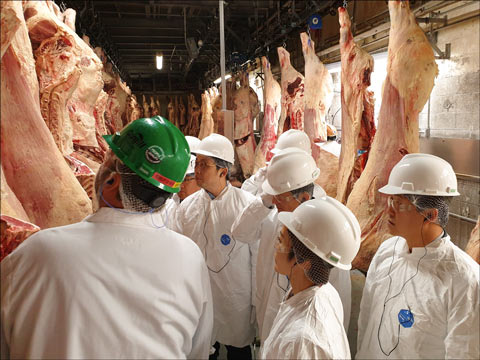



US sees spike in contaminated Australian meat shipments
US food safety officials have blocked a rising number of meat shipments from Australia since 2019 due to fecal contamination, straining trade relations between the two countries, according to documents reviewed by Reuters.
.jpeg)
Reuters reports that labor and food safety groups attribute the problem to an Australian system that increasingly allows companies to inspect their own meat, replacing government inspectors. Similar efforts to privatize inspections are underway in other major meat-producing countries including the United States.
Ten shipments of meat from Australia, America's second biggest foreign meat supplier, were refused by the US Food Safety and Inspection Service (FSIS) because of contamination with feces or other digestive matter in 2020, up from one in 2019 and four in 2018, according to internal data from the US Department of Agriculture (USDA) included within the documents.
Canada and New Zealand, two other large suppliers of meat to the United States, each only had one rejected shipment for contamination with fecal or other digestive matter in 2020, the internal data show. Mexico, another major supplier, had none.
Another three shipments of Australian meat were rejected for the same reason during the first two months of 2021, compared to one from New Zealand and none from Canada or Mexico, the data show. More recent figures were not included in the documents reviewed by Reuters, and the USDA declined to provide them when asked.
The companies that exported the rejected Australian shipments include JBS Australia, Thomas Foods, Fletcher International Exports, Australian Lamb Co, and V&V Walsh. Reuters was able to identify the firms by cross-referencing the internal data detailing the date and reasons for the rejections with publicly available USDA data detailing dates and company names but excluding the reasons for the rejections.
None of the companies responded to requests for comment.

Eating meat contaminated with feces or other digestive material can result in deadly illness caused by E. coli and other pathogens. Because US food safety inspectors only physically examine or test a subset of imported meat, the rejections suggest that other contaminated shipments may have made it through the United States border, according to food industry experts.
FSIS downplayed the rejections data in a statement to Reuters, saying its import inspection process “provides confidence in the safety of product from Australia that enters into US commerce.” The US food inspection agency added that just 0.6% of the Australian meat that it physically examined in 2020 was rejected. It did not provide a figure for what fraction of all imports was examined.
Australia’s Department of Agriculture, Water, and the Environment (DAWE) told Reuters in a statement that "Australian non-compliances remain very low – both relative to Australia’s total volume of meat and meat products exported, and when compared to competitor trading partners."
The rising rate of rejections by the United States has become a worry for Australia and US government officials, according to internal memos reviewed by Reuters.
Jason Lucas, the assistant secretary for the meat exports branch of Australia's DAWE, wrote in a March 2021 memo that the agency was seeing an "ongoing trend" in the detection of feces and digestive material on meat shipped to the United States, despite an October 2020 effort by the agency to curb such rejections.
He wrote that the spike has been highlighted by US food safety officials as a concern and warned that a continued trend of rejections “could result in the US imposing sanctions, losses in confidence in Australia’s export system, and/or potential losses in market access for the US.”

Meat companies inspecting themselves
The uptick in rejected meat shipments highlights potential problems in Australia’s domestic inspection regime, which has been transitioning from a government-run to a company-run system.
Other major producers including the United States, Canada, and New Zealand have been moving toward similar systems.
Under such semi-privatized schemes, regulators allow meat companies to substitute their own workers for government employees to inspect carcasses as they moved down the processing line. The change intends to speed up operations and save companies and the government money without undermining quality.
The Australian Export Meat Inspection System (AEMIS) was developed collaboratively by the meat industry and government and introduced in 2011. By 2019, an industry report found that half of exporting meat plants in the country had adopted the system.
Critics of company-run inspections say the system can result in more contaminated meat because plant workers often aren’t as experienced as government inspectors and may also feel pressure from their employers to prioritize speed over safety.
Read the full story in Reuters.
Source: Reuters


